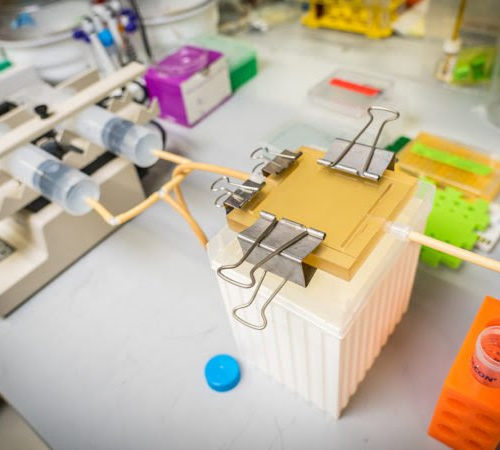A team of researchers led by the University of California San Diego has created a device that measures how “sticky” cancer cells are, which could improve prognostic evaluation of patient tumors. The device is built with a microfluidic chamber that sorts cells by their physical ability to adhere to their environment. Researchers found that weakly...
Tag: <span>tumor cells</span>
Study shows how circulating tumor cells target distant organs
by University of Southern California Most cancers kill because tumor cells spread beyond the primary site to invade other organs. Now, a USC study of brain-invading breast cancer cells circulating in the blood reveals they have a molecular signature indicating specific organ preferences. The findings, which appear in Cancer Discovery, help explain how tumor cells in the blood target a particular organ and may enable the development of treatments to...
Revolutionary’ new class of cancer drugs approved
By James GallagherHealth and science correspondent, BBC News A “revolutionary” new class of cancer drug that can treat a wide range of tumours has been approved for use in Europe for the first time. Tumour-agnostic drugs do not care where the cancer is growing in the body as long as it has a specific genetic abnormality inside. UK doctors testing the drugs said they were “a really exciting...
Drug approved to treat tenosynovial giant cell tumor
The drug was approved for patients with TGCT with severe morbidity or functional limitations that has not improved with surgery. Turalio is only available through the Risk Evaluation and Mitigation Strategy Program. Approval was based on data from a multicenter international clinical trial of 120 patients. After 25 weeks, patients who received Turalio had a...
Targeted therapy proves effective against aggressive rare blood cancer
by Dana-Farber Cancer Institute A multi-institutional clinical trial has given good results for a targeted therapy to treat a rare, aggressive blood cancer known as blastic plasmacytoid dendritic-cell neoplasm (BPDCN). Details on the trial, which supported Food and Drug Administration approval of the tagraxofusp therapy in December 2018, have been published in the New England Journal of Medicine....
Cancer surgery can awaken tumor cells, but in mice a cheap pill stops metastasis
Drugs like Aspirin can prevent the immune system from letting down its anti-cancer guard, according to a study in mice.JOE RAEDLE/GETTY IMAGES Bottles of aspirin and ibuprofen won’t soon be carrying labels saying they reduce the risk of breast cancer recurrence after surgery, but that kind of cheap drugstore remedy stemmed metastasis in a startling...
Newly Discovered MicroRNA Regulates Mobility of Tumor Cells
Cancer cells can reactivate a cellular process that is an essential part of embryonic development. This allows them to leave the primary tumor, penetrate the surrounding tissue and form metastases in peripheral organs. In the journal Nature Communications, researchers from the University of Basel’s Department of Biomedicine provide an insight into the molecular networks that regulate...
Novel assay shows promise for non-invasive detection of PD-L1 on circulating tumor cells
Researchers have presented the first report of a new microfluidics-based approach for detecting circulating cancer biomarkers in blood samples Future Science Group (FSG) today announced the publication of an article in Future Science OApresenting early data from a novel assay for the non-invasive detection of PD-L1 and other biomarkers in patient blood samples. Response rates to...
Tethered nanoparticles make tumor cells more vulnerable
New strategy could improve performance of some immune-based drugs MIT researchers have devised a way to make tumor cells more susceptible to certain types of cancer treatment by coating the cells with nanoparticles before delivering drugs. By tethering hundreds of tiny particles to the surfaces of tumor cells in the presence of a mechanical force,...
The way you move: Tumor cells move differently than normal ones
This is a microscopic image of a tumor cell migrating through collagen. What makes cancer so deadly is its ability to move . The better that doctors can keep tumors contained and protect unaffected organs in the body, the less lethal a cancer will be. So if doctors were able to pinpoint tumor cells and...

